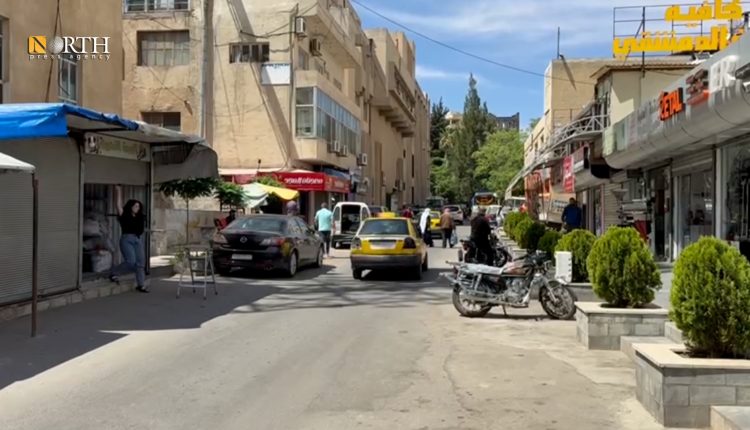Suwayda Activists Reject Foreign Intervention, Call for Unified Civil State
By Kardo Roj
SUWAYDA, Syria (North Press) – Political activists and community figures in Syria’s southern Suwayda Governorate are reiterating their commitment to a unified, civil Syrian state while firmly rejecting calls for foreign protection or external intervention. The statements come amid renewed local discourse over governance models in the wake of the collapse of central authority in parts of the country.
Suwayda, historically tied to Syria’s national identity and the site of the 1925 Great Syrian Revolt led by Sultan Pasha al-Atrash, continues to assert its position within the national fabric. Civil society actors describe this legacy as central to their rejection of secessionist sentiments or externally driven agendas.
Marwan Hamzeh, a political activist from Suwayda, emphasized that the region remains “a cornerstone in the Syrian state,” citing the enduring slogans raised in Suwayda’s al-Karama Square that call for Syrian unity from the southern mountains to Hasakah in the northeast. “Voices calling for separation or international protection are rejected and externally motivated,” Hamzeh told North Press.
“We do not want foreign protection,” he added. “Our true protection is our people, our homeland, and the principles of national unity.” He also called for the return of displaced persons and the lifting of sanctions to enable dignified living without foreign tutelage.
Echoing this stance, Dr. Jamal al-Shoufi, a Suwayda-based writer and researcher, highlighted the region’s peaceful activism. From its historic role in the Syrian uprising to its 2012–2013 refusal to join the armed conflict, Suwayda has embraced a nonviolent path, he said. “The al-Karama Square movement was a global marathon in peaceful protest that lasted over 15 months,” he added.
Al-Shoufi stressed the need for a transitional period marked by inclusive national dialogue and laws to regulate political parties and prevent sectarian incitement—steps he views as essential to countering separatist rhetoric.
Political analyst Jamal Darwish warned that the absence of strong political organization in the region risks transforming the public sphere into one prone to sectarian or ideological conflict. He noted that Suwayda has consistently rejected the use of its youth as a “human reservoir” for armed conflict, instead welcoming displaced Syrians regardless of background.
Currently, Suwayda is divided among three primary political currents: one favoring decentralization under Damascus, led by Sheikh Hikmat al-Hijri; a second advocating integration with the transitional government; and a third supporting a federal model inspired by northeastern Syria’s Autonomous Administration.
Despite internal divisions, local armed formations—such as the “Men of Dignity Movement,” “Karama Gathering,” and “Free Men of Jabal al-Arab”—have reached preliminary understandings with the Syrian government. However, Sheikh al-Hijri’s faction continues to demand clear guarantees regarding civil governance and separation of powers before full engagement with Damascus.
Civil activist Saleh al-Nabwani summarized the prevailing sentiment: “Suwayda will remain committed to the national path. Our people reject being used in partition projects. We want a sovereign, just Syrian state.”
As Syria emerges from years of war and sanctions, Suwayda’s communities seek a future grounded in justice, sovereignty, and unity, resisting fragmentation and foreign influence.

